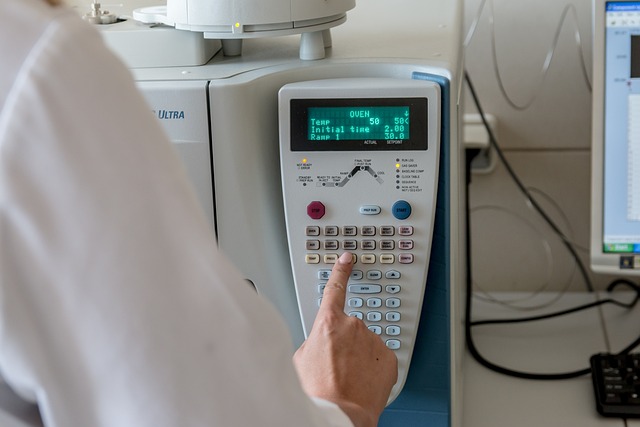Liver Function Tests (LFTs) integrated with UK Kidney Blood Tests provide medical professionals critical insights into liver and kidney health. LFTs detect enzymes, proteins, and markers indicating liver inflammation, damage, synthetic function, and bile flow. Understanding these results, alongside patient history and symptoms, enables accurate diagnosis and management of liver conditions like hepatitis or cirrhosis. Similarly, UK Kidney Blood Tests help assess kidney function by measuring creatinine and urea levels, alerting to reduced filtration or damage. Regular testing for both is vital for early detection, proactive health management, and preventing severe complications.
In the realm of healthcare, understanding liver function tests (LFTs) is paramount for medical professionals. This comprehensive guide delves into the intricacies of LFTs, offering a detailed exploration of the UK Kidney Blood Test—a crucial diagnostic tool. By interpreting results accurately, healthcare providers can unlock insights into liver health, enabling effective patient management and optimized clinical outcomes. From recognizing abnormal patterns to tailoring treatments, this article equips professionals with essential knowledge for comprehensive liver care.
- Understanding Liver Function Tests: A Comprehensive Guide for Professionals
- Interpreting Results: Unlocking the Insights from UK Kidney Blood Test
- Clinical Applications and Patient Management: Optimizing Liver Health
Understanding Liver Function Tests: A Comprehensive Guide for Professionals
Liver function tests (LFTs) are a series of blood tests that assess the health and functionality of the liver. These tests are crucial for medical professionals as they provide valuable insights into potential liver damage, disease, or abnormality. In the UK, kidney blood tests often include LFTs to screen for and monitor liver-related issues, given the vital role the liver plays in detoxification and metabolism.
A comprehensive guide for professionals highlights that LFTs measure various enzymes and proteins produced by the liver. Elevated levels of certain enzymes, like alanine aminotransferase (ALT) or aspartate aminotransferase (AST), may indicate hepatic inflammation or damage. Other tests, such as albumin and bilirubin levels, help evaluate liver synthetic function and bile flow respectively. By interpreting these results alongside patient history and clinical symptoms, healthcare providers can effectively navigate and diagnose liver-related conditions.
Interpreting Results: Unlocking the Insights from UK Kidney Blood Test
Interpreting results from a UK Kidney Blood Test is a crucial step for medical professionals to gain valuable insights into kidney function and overall health. By analyzing various markers, such as creatinine and urea levels, doctors can assess how well the kidneys are filtering waste products from the blood. Elevated creatinine, for instance, may indicate reduced kidney function or damage.
Understanding these results is essential as it allows medical professionals to make informed decisions about patient care. If abnormalities are detected, further tests or interventions might be necessary to address potential kidney issues early on. Regular monitoring through UK Kidney Blood Tests can help track kidney health over time, enabling proactive management and potentially preventing more severe complications down the line.
Clinical Applications and Patient Management: Optimizing Liver Health
Liver function tests (LFTs) are a critical tool for medical professionals, offering insights into liver health and enabling early detection of potential issues. In the UK, kidney blood tests play a pivotal role in routine health screenings and monitoring chronic conditions. By assessing enzymes like ALT, AST, ALP, and bilirubin, healthcare providers can identify hepatitis, cirrhosis, or other liver abnormalities. This proactive approach to screening is crucial for patient management, as timely intervention can significantly improve liver outcomes.
Optimizing liver health involves a multi-faceted strategy. For patients with elevated LFTs, medical professionals should consider factors such as alcohol consumption, medication interactions, and underlying metabolic disorders. Lifestyle modifications, including diet adjustments and regular exercise, are often recommended to support liver regeneration and reduce the risk of further damage. Close monitoring and regular UK kidney blood tests are essential to track progress and adjust treatment plans accordingly.
Liver function tests, including the UK Kidney Blood Test, are invaluable tools for medical professionals to assess and manage liver health. By interpreting results accurately, healthcare providers can identify liver conditions early on, enabling effective clinical applications and patient management strategies. Understanding these tests and their implications is crucial for optimizing liver care and improving patient outcomes.
